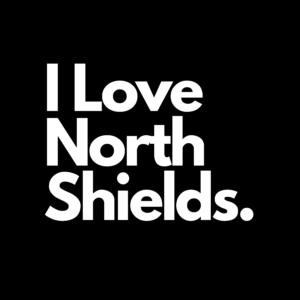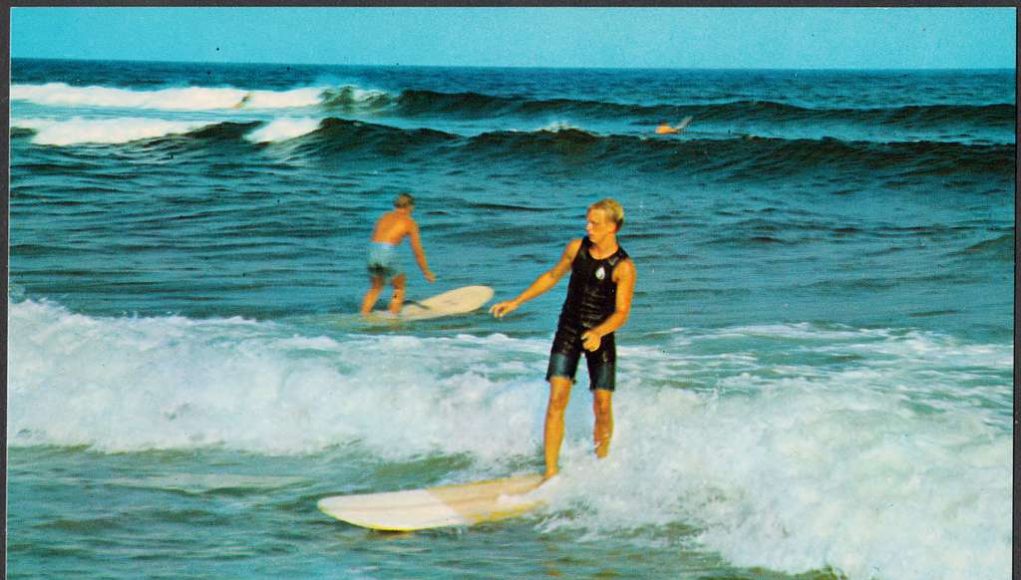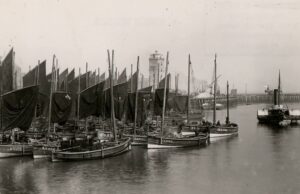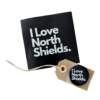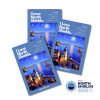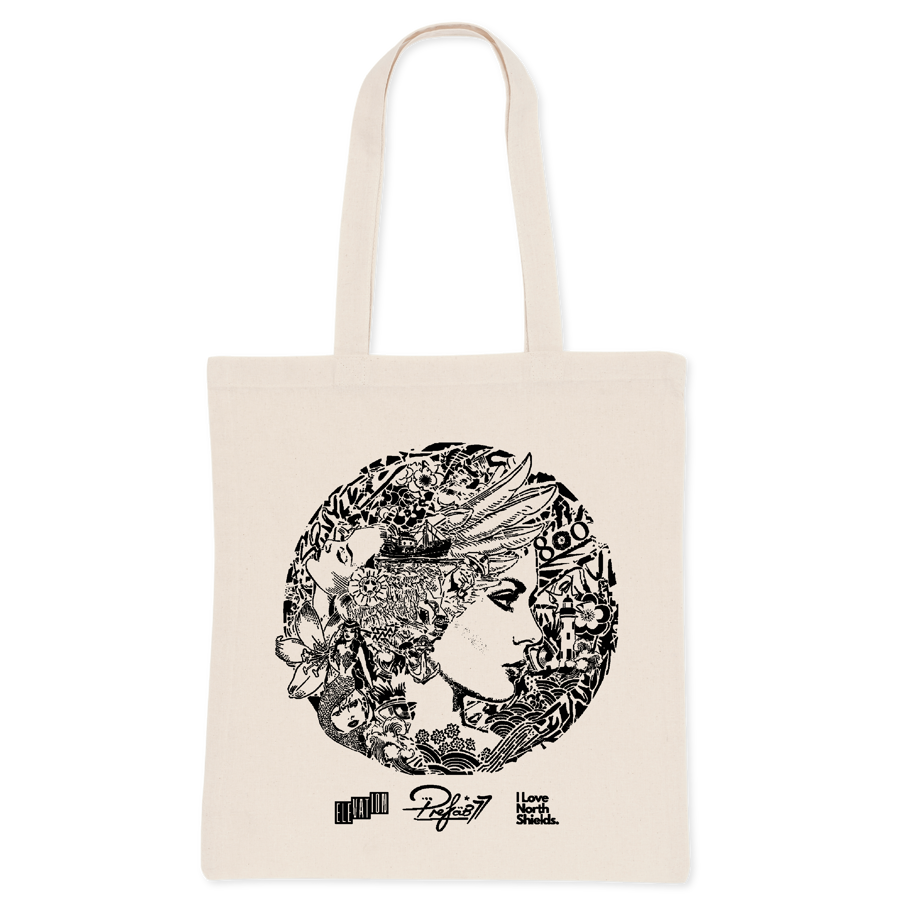A Letter from Brother Aelfric of Tynemouth Priory, 1322 A.D.
“Thick sea-frets roll in, wrapping everything in gloom.
Dim eyes, hoarse voices, sore throats are the consequence.
Spring and summer never come.
The north wind is always blowing.
Birds nest in the rocks and greedily prey upon the drowned.
The people who live by the shore feed upon black, evil-smelling seaweed; the constant eating of it turns their complexions black.
The sea air blights the blossoms; you think yourself lucky if you find a wizened apple,
but it will set your teeth on edge.
See to it, dear brother, that you do not come to so comfortless a place.
But the church is of wondrous beauty.”
And so it began — centuries later, the same cruel wind still slashing the cliffs, the same wolf-toothed sea gnawing the sand, but the prayers replaced by a new kind of devotion. The monks had gone, the priory half in ruin, but the rhythm of the waves kept calling.
By the mid-1990s, that call found its answer in the most unlikely of sanctuaries… a greasy-spoon café on Grand Parade, the kind where bus-drivers gathered at dawn for tea and bacon, their laughter fogging the windows as the first light crawled over Longsands.
The place smelled of cigarettes, full English breakfasts, coffee, diesel, and salt.
Nobody guessed that one day it would become a chapel for surfers and the restless soul of the North Sea.
In 1995, Stephen Hudson, son of local surf pioneer Ronnie Hudson, joined forces with Mark Ward — a man of vision, charisma, and the relentless drive of someone who could hear music in everything: the waves, the wind, the hammering of nails. Together they looked at that run-down café and saw what it could be: not a business, but a beacon.
They called it Tynemouth Surf Co, though at first it was more dream than shop. Money was scarce, materials scarcer. But dreams thrive on scarcity. Mark’s vision was half surf-philosophy, half gospel — he’d come up through the dance-music scene, a blur of warehouse parties and strobe-lit nights, believing that community could be built from chaos. Around him gathered a tribe of surfers, skaters, DJs, and misfit drifters from the dance scene parties — some artists, some outlaws, all alive.
The stories say about thirty of them raided the night. They slipped through fences at the Tynemouth Outdoor Pool, long derelict, and carried off the timber from its collapsing changing-rooms. They scavenged floorboards from the abandoned Whitley Bay Post Office and Spanish City sites too — scraps and offcuts, ghost-wood from forgotten builds. It wasn’t theft so much as resurrection. Every plank carried a piece of the coast’s abandoned past.
At the same time, just along the seafront under the echoing roof of the old Tynemouth Plaza, a new pulse was being born: the Vertigo Skatepark, built and run by Chris Mason and Mad Mick Moore — the air thick with sawdust, dance music and punk rock. Power-tools whined over basslines, sparks flew against brick. The same misfit crew who worked nights at Vertigo were back at the café come morning, hammering walls, painting signs, shaping what would become the Surf Co. They had the tools, drills, the grinders, the attitude — they could build anything, on sea or street.
Mark Ward stood at the centre, the axis of that beautiful anarchy. His vision wasn’t about sales — it was about salvation. He wanted to give the North East surf community a heart, a home, a place to gather when the cold wind cut too hard. He believed that surfing and raving were cousins — both about losing yourself in rhythm, surrendering to something bigger.
So as they built, the café grease gave way to surf wax. The years of thick grease scraped from the walls, fryers came out; the boards went up. The bus-drivers’ ghosts looked on approvingly, smoking their phantom cigarettes as the building transformed. The shop became a hub, a hearth — the kettle always on, the conversation always rolling.
Down the road, Vertigo Skatepark thumped with life. The boundary between surf and skate dissolved completely. One moment you were carving plywood on BMX bikes and skateboards, the next you were paddling into a freezing wave. The sea and the street shared the same heartbeat.
Mark’s belief stitched it all together. He saw possibility where others saw ruin. He pulled in DJs, local artists, kids who might otherwise have drifted. He gave them boards, purpose, a tribe. The people who’d once hustled or run from the law were now teaching groms how to ride waves. The same defiance that once led to crime now fuelled creativity.
And out beyond it all, the North Sea kept roaring — the same wild hymn Brother Aelfric once heard through the monastery walls.
Today, the skatepark and the Plaza are long gone — it burned down in 1996… but Tynemouth Surf Co still stands in that same Palace Building, looking out over Longsands. The surf school thrives, the community hums. You can still feel the echoes — of saws and basslines, of monks and bus-drivers, of Mark Ward’s steady vision and Stephen Hudson’s legacy. The air smells of salt, not smoke; of wax, not grease.
“The sea yet gnaws the land like a wolf at bone — but the people of Tynemouth ride upon its back.”
— Leonard Apron
